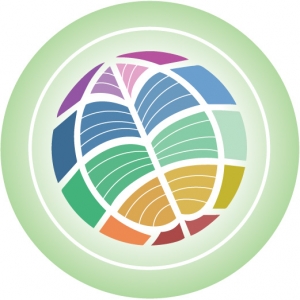 Brexit, Trump, the Bernie Sanders phenomenon, and more can be explained by examining evolving categories of fundamental beliefs.
Brexit, Trump, the Bernie Sanders phenomenon, and more can be explained by examining evolving categories of fundamental beliefs.
Guest blog published in Scientific American, June 28th 2016.
Politics can be depressing these days, but it is also a fascinating mirror of what is going on psychologically and culturally. Looking more closely, and deeply, at our political situation can tell us so much about ourselves. So that is what I tried to do, using my research into worldviews to understand better what I was seeing in the daily news. I ended up writing an op-ed piece for Scientific American, entitled “Understanding our polarized political landscape requires us to take a long, deep look at our worldviews.”
Here is an abbreviated version:
Historians often look at society with the aim of seeing larger, overarching patterns in how humans tend to relate to the world, and how their understanding of reality changes throughout time. These worldviews are the lenses through which people see and filter reality, shaping our world in many seen and unseen ways. Worldviews inform both individual choices as well as our group identities, and they tend to underlie our disagreements and add emotional spice to our societal debates. Therefore, if we want to fathom the unexpected (and in many ways unprecedented) support that candidates like Trump and Sanders have garnered, and understand the intense polarization that characterizes our contemporary political landscape, we better take a long, deep look at what is happening with our worldviews.
With respect to a contentious issue like climate change, currently the extremes almost couldn’t be bigger, as the political landscape now stretches from a highly influential climate-denier on the far right (and presumptive nominee for the GOP), to a probably comparably influential climate-hero on the far left. Though Sanders did not win the nomination for the Democratic Party, his influence on the debate within the party has been enormous, and he has garnered passionate support among his followers, not in the last place because of his positions on fracking and a carbon tax.
 Looking at these political positions from the perspective of worldviews, we see that Sanders appears to rally people with predominantly postmodern worldviews. The postmodern worldview arose in response to the shortcomings of the modern worldview, and therefore tends to be critical toward its model of society: its (narrow) ideas of progress, the frequently materialist and reductionist orientation of modern science, the risks and environmental impacts of its technologies, and the injustices of (global) capitalism. In antithesis to the culture it arose from, postmodernism emphasizes values like pluralism, authenticity, relativism, indeterminacy, egalitarianism, and skepticism. It is marked by a shift from “material” to “post-material” values: that is, from a focus on welfare to well-being, and from quantity to quality.
Looking at these political positions from the perspective of worldviews, we see that Sanders appears to rally people with predominantly postmodern worldviews. The postmodern worldview arose in response to the shortcomings of the modern worldview, and therefore tends to be critical toward its model of society: its (narrow) ideas of progress, the frequently materialist and reductionist orientation of modern science, the risks and environmental impacts of its technologies, and the injustices of (global) capitalism. In antithesis to the culture it arose from, postmodernism emphasizes values like pluralism, authenticity, relativism, indeterminacy, egalitarianism, and skepticism. It is marked by a shift from “material” to “post-material” values: that is, from a focus on welfare to well-being, and from quantity to quality.
We see this worldview expressed in Sanders’ suspicion of a modernist, corporate-ruled system favoring the rich and powerful; his focus on the emancipation of the oppressed (particularly the poor); his welcoming of cultural diversity; and his advocating of environmental care as an important social responsibility. In postmodern style, Sanders’ unfashionable authenticity became a major ‘selling point’ for him, rather than it being a liability as it probably would have been with both more traditional and more modern supporters. Also the campaign slogan“Feeling the Bern” is telling, as it hints at the idea of leading with feeling rather than with (modern-style) rationality or cost-benefit reasoning. There are also indications that the postmodern worldview appreciates more complex, systemic ways of reasoning, which is expressed in Sanders’ overarching analysis of all that is wrong with the American political and economic system as a whole.
 Trump, due to his impulsive and unpredictable character, is a little harder to pin down. However, he seems to mobilize people mainly with a mix of, or bridging between, traditional and modern worldviews.
Trump, due to his impulsive and unpredictable character, is a little harder to pin down. However, he seems to mobilize people mainly with a mix of, or bridging between, traditional and modern worldviews.
People endorsing a traditional worldview tend to uphold a range of values that are not always easily reconcilable with the controversial and pragmatic figure that Trump is, such as their focus on family life, communal values, social order, lawful authority, humility, and the sanctity of their (generally religious) beliefs. At the same time, Trump exhibits the kind of authoritative leadership, winner mentality, attitude of disciplining through punishment, simplistic solutions (“build a wall!”) and moral hierarchy (e.g., the strong above the weak; our country above other countries; men above women; whites above nonwhites) that may strongly appeal to people with this worldview. The shadow of this worldview tends to express itself in ethnocentrism and a questioning of science when it challenges one’s beliefs (e.g., climate change!), which are both obvious in Trump.
Some of the more modern values that Trump emphasizes, as well as symbolizes, are business success, wealth, achievement, freedom, power, and individual self-sufficiency and responsibility.
The rise of both Sanders and Trump starts to make more sense when we extend our usual socio-economic analyses to include more cultural-historical perspectives. While the postmodern worldview only really emerged about half a century ago, it has been steadily growing ever since, extending its influence far beyond the academic and artistic elites. Once a leader embodying the values of this worldview stood up, this group showed an overwhelming commitment to get this unusually like-minded leader elected. As recognized in the social sciences, culture is transmitted from one generation to the next. Older worldviews therefore tend to ‘die off’ with older generations, while newer worldviews tend to come into being with newer generations. This explains the disproportional support from younger people for Sanders, in comparison with what (a much more modernist) Clinton has been able to generate.
Although much has been said to explain the rise of Trump, one reason that stands out is the ways in which the more traditional (bridging to modern) oriented segments of society have been feeling encroached upon, and threatened by, the emergence of more postmodern views and values. As some have argued, Trump supporters feel they can’t keep up with the pace of, and direction in, which the world is changing, especially as more immigrants have arrived, as the country has become less white, as more women have moved into the workplace, as gays have become more visible and gay marriage acceptable, and as the economy and the job market have become more unpredictable and more knowledge and creativity centered.
These existential uncertainties may lead many to seek out a strongman leader who promises to preserve a status quo they feel is under threat, and imposes order on a world they experience as increasingly alien. As they feel oppressed by social pressures challenging their views, supporting Trump, who forcefully and shamelessly expresses what they feel, means their views are heard and given credibility, thus giving them a sense of self-respect, authority, and power. So in some way, it is precisely the widespread rise of the postmodern value-complex that may partially explain the powerful conservative backlash that we see now, as exemplified by the Trump-movement.
However, this phenomenon is for sure not limited to the American political landscape, as shown by the Brexit-vote as well as a range of right-wing nationalist movements that are gaining momentum across Europe. These movements are fueled by anger toward political elites and mistrust of immigration. And although the postmodern and traditional worldviews are of a fundamentally different nature, they do hold certain views in common, as many commentators have pointed out. They share a critique of the system as “rigged”, a deep suspicion towards those in power, and a questioning of the elitist expert-knowledge the system is founded upon—even though these emerge out of substantially different ways of thinking. In many ways, the postmodern worldview is quite far removed from the potentially ethnocentric tendencies of the traditional worldview, as it embraces diversity and proclaims to strive for emancipation for all. Yet its incessant critiques of the biased, unjust nature of the political and economic system strongly resonates with some of those who have been most marginalized by it.
Thus, worldviews are not merely abstract or theoretical ideas that intellectuals like to speculate about! On the contrary, they have massive implications for (and interact in many complex ways with) our social, economic, and political life. However, more important than any typology of worldviews is the reflexive attitude a worldview-perspective supports. Worldviews are a fundamental part of individuals’ group identities, and people often react as strongly to perceived threats to these social identities as they do to defend themselves against personal attacks. We see this in the heat and emotionality of our political debates! However, once we become more aware of our (naturally partial and biased) worldviews, we start to see them in a larger context of a wider range of perspectives and values. We realize that there are also other worldviews, and that the people who hold them are not all idiots!
Psychological research has shown that when we are less invested in these social/worldview identities, and we can look at them with more distance and mindfulness, we are less inclined to respond as if we ourselves are threatened when our assumptions about reality are called in to question. Then a more truly open dialogue, which honors a wider range of perspectives, may start to take place. Supporting individuals to explore and reflect on their worldviews is therefore perhaps where the real change happens.
This is, in my eyes, where the true hope for our deeply polarized world lies.



